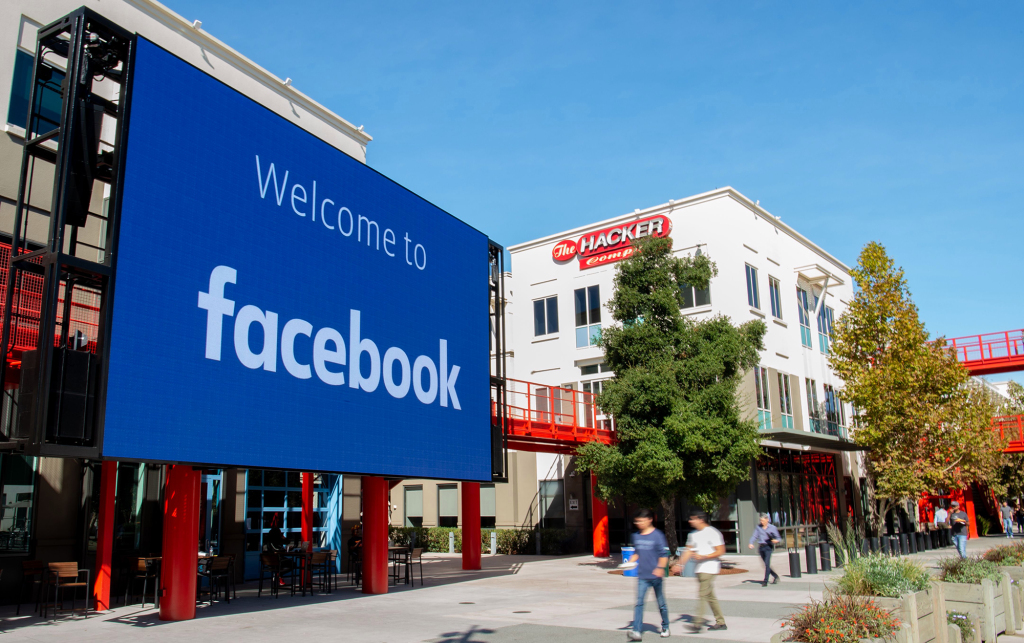One current Facebook manager and two job applicants have filed a charge with the Equal Employment Opportunity Commission alleging that Facebook has “a general policy of discrimination against Black applicants and workers, including in hiring, evaluations, promotions, and pay.”
The EEOC charge, filed Thursday, is being brought by Oscar Veneszee, Jr., who is a current Black Facebook employee and two Black professionals named Howard Winns, Jr. and Jazsmin Smith, who claim they were denied multiple positions at the company for which they were qualified.
“People of color and Black workers in particular remain underrepresented at all levels of Facebook and especially at the management and leadership levels. They do not feel respected or heard. And they do not believe that Black workers have an equal opportunity to advance their careers at Facebook. There may be Black Lives Matter posters on Facebook’s walls, but Black workers don’t see that phrase reflecting how they are treated in Facebook’s own workplace,” the charge states.
Facebook did not respond to a request for comment.
The complaint comes at a time when Facebook is facing an advertiser boycott over how the company has handled hate speech and misinformation. A civil rights coalition that includes the Anti-Defamation League (ADL) and the NAACP launched the #StopHateforProfit campaign last month, calling on major corporations to halt advertising on Facebook for the month of July, due to the platform’s “repeated failure to meaningfully address the vast proliferation of hate on its platforms.”
Like other tech companies in Silicon Valley, Facebook has struggled with diversity in its ranks. In 2014, when the company first began releasing diversity figures, Facebook’s US workforce was 2% Black. Five years later, it was still just 3.8% Black. (Facebook has yet to publish its 2020 diversity report.) Facebook had 48,268 employees globally as of the end of March, with a significant portion in the US.
Thursday’s EEOC charge wasn’t the first time employees have spoken out about diversity issues at Facebook. In November 2018, diversity advocate and former Facebook manager Mark S. Luckie said the company had a “Black people problem.” Almost a year later, a dozen current and former Facebook employees wrote an anonymous post on Medium titled “Facebook Empowers Racism Against Its Employees of Color” which detailed their alleged negative experiences and treatment at the company. At the time, Facebook apologized, telling CNET: “No one at Facebook, or anywhere, should have to put up with this behavior,” Facebook spokeswoman Bertie Thomson said in a statement. “We are sorry. It goes against everything that we stand for as a company. We’re listening and working hard to do better.”
Last year, Facebook agreed to pay nearly $5 million to settle several lawsuits that alleged its advertising platform allowed for discrimination in housing, employment and credit ads. From November 2016 to September 2018, the company was hit with five discrimination lawsuits and charges from civil rights and labor organizations, workers and individuals. The allegations claimed Facebook’s ad systems excluded certain people from seeing housing, employment and credit ads based on their age, gender or race.
Thursday’s employment discrimination charge states it’s also on behalf of other Black workers who have been employed by Facebook, or who applied and were denied jobs at Facebook or other employment opportunities because of racial discrimination. The three complainants are asking the EEOC to investigate.
An EEOC charge is a first in the employment discrimination process. It does not automatically mean that a company engaged in discrimination. The EEOC has the authority to investigate whether there is reasonable cause to believe discrimination occurred, according to the agency’s website. Often times, an organization addresses a charge through mediation or settlement. If the EEOC can’t determine that discrimination occurred, the complainant can file a lawsuit.
Thursday’s charge alleges that Facebook has policies, patterns, or practices that adversely impact the opportunities of Black workers and applicants. Among the structural issues are Facebook’s alleged practice of using peer reviews from an overwhelmingly White and Asian-American workforce and its “failure” to have diverse groups of employees and managers evaluate workers. The charge also said Facebook requires employees to arbitrate all racial discrimination and harassment claims in a secret forum where all rulings are “confidential and not available to the public.” It’s unclear whether Veneszee brought any claims in a secret forum.
It’s a risk for an employee to bring a charge of this nature while still working at a company. But as protests concerning racial equality sweep across the United States in the wake of the death of George Floyd, Veneszee decided it was the right time to act. “This is now the time I feel to say something. It’s my responsibility to do so,” he said. “There is so much risk involved. I’ve questioned myself. This is a difficult decision, but I think it’s the right one.”
Veneszee, who is a Navy veteran and joined Facebook in 2017, supports veterans’ initiatives within the company’s infrastructure division and helps to recruit people of color to its data centers. According to the complaint, he has allegedly heard colleagues use the N-word in the workplace, has been criticized for offering constructive thoughts about diversity recruiting plans, and has never received an evaluation higher than “Meets All Expectations” or received a promotion despite Veneszee’s belief that he’s exceeded expectations and been praised by his manager. He also said he’s never been reviewed by a Black manager.
In an interview with CNN Business, Veneszee recalled one meeting with a White recruiter discussing an intern recruitment plan. Veneszee said he asked why the recruiter had listed only one historically Black college or university on her plan. “She felt as though I was attacking her,” Veneszee said. “I received a call from my manager asking me what happened, what I said to her.” He was then allegedly asked to smooth out the situation and apologize to the recruiter. “I don’t see why the word HBCU or Black would offend anyone,” Veneszee said, noting that he didn’t believe he asked the question in an aggressive manner.
Veneszee said he has tried to take several steps internally to raise awareness of various issues, including sharing his thoughts on internal Facebook forums. In one internal posting, he wrote that Black employees were not happy within the infrastructure division. HR contacted him about the post and invited him to discuss how the company should be approaching diversity issues. However, he said those conversations did not lead to action. “I don’t think they got it,” Veneszee said.
Winns, one of the job seekers who brought the charge, applied for three roles at Facebook, for which he claims he was well-qualified. He was referred by a current employee of Facebook for two of those positions. According to the charge, Facebook allegedly prefers to hire employees based on referrals from existing workers. Winns, who has an MBA from the College of William & Mary, has held roles at BNSF Railway, Union Pacific and Norfolk Southern Corporation. He currently works at a major tech company that isn’t named in the charge.
According to the charge, the other Facebook employees who are currently in the same role that Winns, applied for have similar or lesser experience or education than him, and are all White.
In one of his interviews with Facebook, Winns alleges that the recruiter and interviewer said his background, including his education and job experience, were a “strong fit” for the job. Within 48 hours of the interview, he was informed he was not selected for the role.
Smith, another job seeker, has applied for roles at Facebook in 2012, 2018, and 2020, for positions she claims she was well-qualified for and met all of the minimum and preferred requirements. Smith has a bachelor’s degree from Clemson University, and has worked for almost a decade in human resources, including at tech firms.
This year, a Facebook recruiter allegedly said she was well-qualified for several positions at the company and that he’d send her applications for several positions. The recruiter allegedly emphasized that “culture fit” is very important at Facebook. She was not offered any interview opportunities and was later informed that Facebook decided she would not move forward with any of those roles, according to the charge.
Despite the allegations, Veneszee said he’s still with the company because of the impact he feels he’s been able to make in connecting with communities about diversity. He and the other complainants hope to work constructively with Facebook on changes. “We need to look internally and be honest about what the problem is,” Veneszee said.
The-CNN-Wire & © 2020 Cable News Network, Inc., a WarnerMedia Company. All rights reserved.
& © 2020 Cable News Network, Inc., a WarnerMedia Company. All rights reserved.










